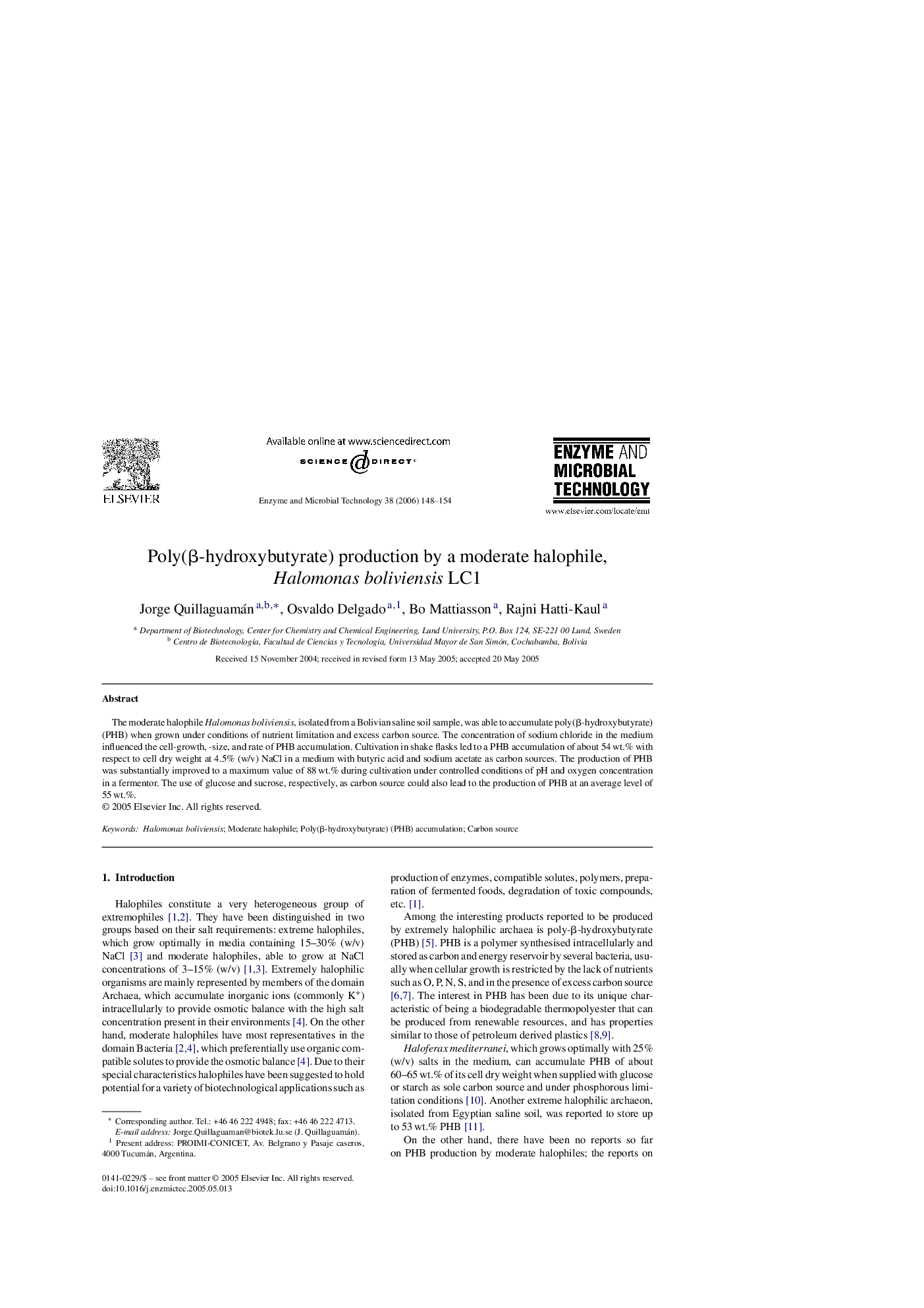| Article ID | Journal | Published Year | Pages | File Type |
|---|---|---|---|---|
| 18572 | Enzyme and Microbial Technology | 2006 | 7 Pages |
The moderate halophile Halomonas boliviensis, isolated from a Bolivian saline soil sample, was able to accumulate poly(β-hydroxybutyrate) (PHB) when grown under conditions of nutrient limitation and excess carbon source. The concentration of sodium chloride in the medium influenced the cell-growth, -size, and rate of PHB accumulation. Cultivation in shake flasks led to a PHB accumulation of about 54 wt.% with respect to cell dry weight at 4.5% (w/v) NaCl in a medium with butyric acid and sodium acetate as carbon sources. The production of PHB was substantially improved to a maximum value of 88 wt.% during cultivation under controlled conditions of pH and oxygen concentration in a fermentor. The use of glucose and sucrose, respectively, as carbon source could also lead to the production of PHB at an average level of 55 wt.%.
